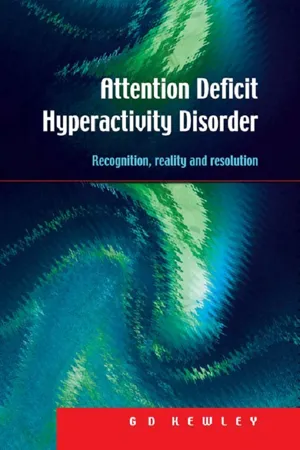
- 260 pages
- English
- ePUB (mobile friendly)
- Available on iOS & Android
About this book
ADHD is a common, complex and yet often misunderstood condition, affecting children, adolescents and adults. It causes a wide range of difficulties with concentration, impulse control, hyperactivity, motivation and time awareness. This can often lead to school failure, expulsion, and emotional, behavioral and social problems.
An estimated two per cent of the population suffers from ADHD. To ensure their effective treatment, three critical areas need to be addressed. Parents, teachers and professionals must become aware of the possibility of ADHD (symptoms can mimic other medical and environmentally related conditions, which can make accurate recognition difficult). Second, the reality of coping with ADHD in its many forms, both for individuals with the condition and those around them, must be acknowledged and understood. Finally, there is a need for a holistic approach to the assessment and management of ADHD to ensure the most effective resolution for individuals.
The author gives an overview of the condition based on the broad internationally recognized approach to ADHD, which takes account of its biological as well as environmental elements. He discusses appropriate management guidelines, which include consideration of medication as well as psychosocial and educational strategies.
The book aims to be a comprehensive and authoritative text on ADHD, its causes and management currently available in the UK. It provides a practical guide to the process of dealing more effectively with ADHD, from initial recognition to effective management strategies via assessment and diagnosis. It is intended for parents, teachers and other professionals to facilitate appropriate understanding and support for this distressing condition.
Tools to learn more effectively

Saving Books

Keyword Search

Annotating Text

Listen to it instead
Information
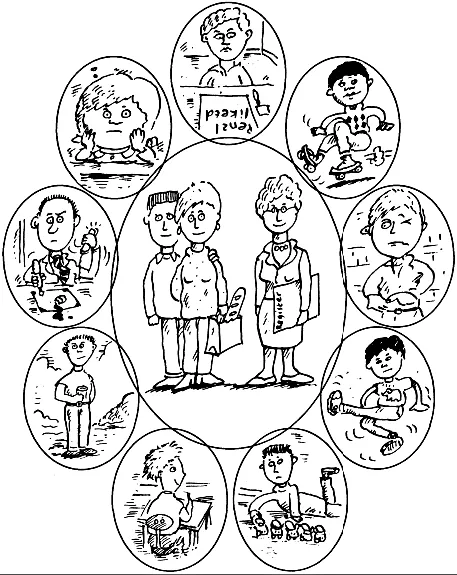
Part 1 What do you notice?
Horace
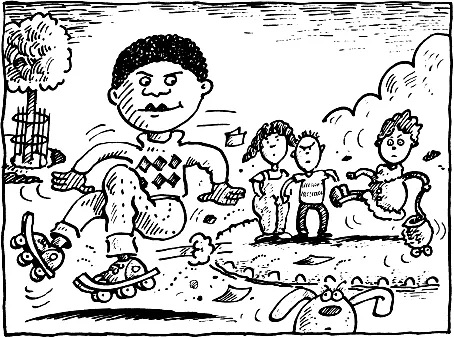
Ingrid
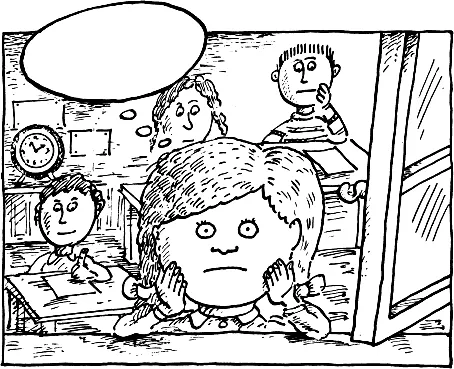
Gilbert
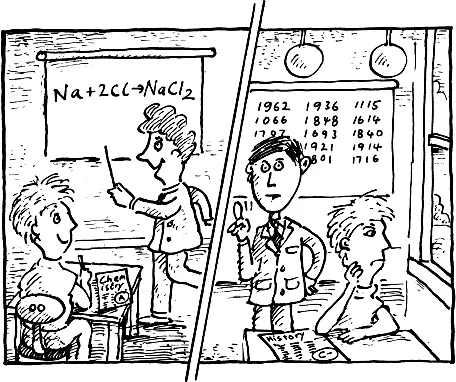
Table of contents
- Cover Page
- Title Page
- Copyright Page
- Contents
- Preface
- Part 1 What do you notice?
- Part 2 What can it be?
- Part 3 How to find out?
- Part 4 What can be done?
- Part 5 The Broader Picture
- Appendices
- Index
Frequently asked questions
- Essential is ideal for learners and professionals who enjoy exploring a wide range of subjects. Access the Essential Library with 800,000+ trusted titles and best-sellers across business, personal growth, and the humanities. Includes unlimited reading time and Standard Read Aloud voice.
- Complete: Perfect for advanced learners and researchers needing full, unrestricted access. Unlock 1.4M+ books across hundreds of subjects, including academic and specialized titles. The Complete Plan also includes advanced features like Premium Read Aloud and Research Assistant.
Please note we cannot support devices running on iOS 13 and Android 7 or earlier. Learn more about using the app